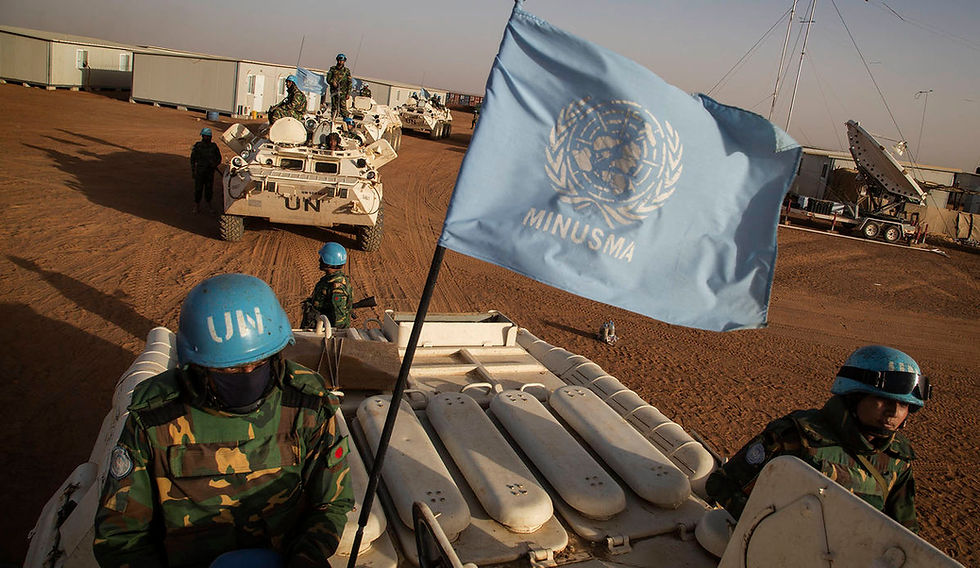International Aid to India Amidst the Second Wave: Foreign Policy Implication
- Simron Tandi
- Aug 16, 2023
- 3 min read
As the deadly second wave of coronavirus infections hit India in April 2021, the situation looked dire. Amidst rising cases and oxygen supply shortages, the Government of India had to appeal for international medical aid through the Ministry of External Affairs. International assistance was sent generously to New Delhi to battle the inevitable surge in India’s covid cases. Amidst the downbeat conditions, India had to make an exception to accept foreign aid from around 40 countries after 17 years of denying acceptance and sticking to the role of a global donor. India’s international image as the “pharmacy of the world” wobbled in just one month of April. Therefore India had to temporarily set aside the old policy of restraint to alleviate the pandemic pain.
India had received oxygen concentrators, ventilators, oxygen cylinders, oxygen generating plants, packs of Favipiravir and vials of Remdesivir as international aid. According to officials, the problem was not in oxygen production but in the transportation of oxygen. Big blocks like the USA, UK, France, EU, Russia, and the Gulf quickly sent help to India. Russia’s second consignment of the Sputnik V vaccine reached India on May 16 2021, while the nation hoped to start the domestic production of Sputnik V from July 2021 onwards.
Apart from big blocks, even smaller nations like Bhutan and Romania had offered their help to India. Such outpouring of aid from big and small countries unveiled India’s fragile self-dependence during the second wave. Even adversaries like China and Pakistan had made offers to India. India said that it had “no conceptual problem” in procuring oxygen-related equipment from China but was unlikely to accept aid from Pakistan. The Indian government had decided to not take personal contributions themselves and instead had routed the grants through the Indian Red Cross Society.
Accepting global aid at such levels was a significant shift in Indian policy after 17 years. In 2003, the then Finance Minister during NDA rule, Jaswant Singh, announced in one of his budget speeches that India would no longer rely on aid tied to any specific purpose. A year later, Dr Manmohan Singh’s government said no to foreign aid during the Tsunami disaster and highlighted that India had turned a global donor. Even the Modi government in 2018 reiterated the same stance regarding foreign assistance during the Kerala floods. However, Indian Foreign Secretary Harsh Vardhan Shringla quickly clarified the doubt on foreign policy shifts and responded that India is “not looking at it in policy terms.” The Indian government had highlighted that it was not a Foreign Policy change but a rare exception where international cooperation was desired to battle the inevitable Covid-19.
However, such a significant decision might have foreign policy implications in the coming years. The outpour of global aid facilitated foreign relations as India recognised the aid as a repayment for its exports of Hydroxychloroquine and medical equipment and its Vaccine Maitri initiative. From the US president to the Russian president, global leaders had shown their gratitude towards India by sending generous aid. They remembered India’s global role in making humanitarian efforts in 2020. Nonetheless, acceptance of assistance could be detrimental to India’s international image that it relentlessly tried to create through its vaccine diplomacy in 2020. There was a hitch in India’s initial plans to be a global donor. India had turned from being “Atma Nirbhar” to being a “Viswa Nirbhar” nation. The change might also compel other countries to find pharmaceutical sources other than India, and hence they could begin to diversify their supply chains.
German Chancellor Angela Merkel said that India’s failure to deliver the pharmaceutical supplies on time would cause Germany to rethink its dependence on India as a source for pharmaceuticals in Europe. India’s vaccine Maitri programme was discontinued amidst the recent surge in domestic cases between April to June 2021. The halt also affected India’s neighbourhood first policy as countries like Bangladesh, Sri Lanka, and Nepal had earlier paid up for the vaccine supplies in January 2021. According to Government officials, vaccine supplies were unlikely to resume before July 2021. With a supply halt from India, the countries in the neighbourhood turned for help to other countries like China and Russia. Last but not least, foreign countries intend to provide aid with a subtle political intention, which could muzzle New Delhi from being critically vocal on foreign policy issues.






Comments